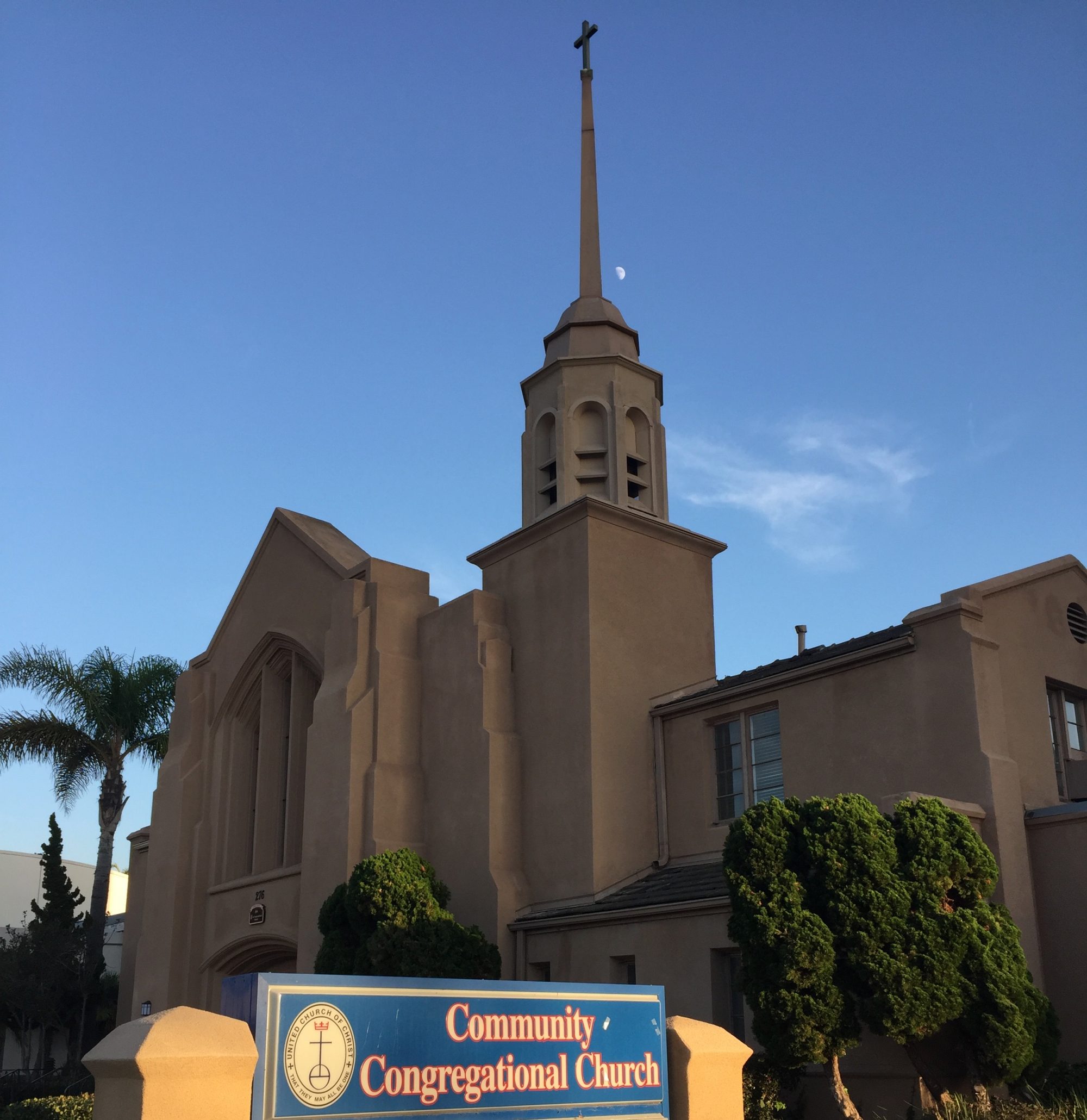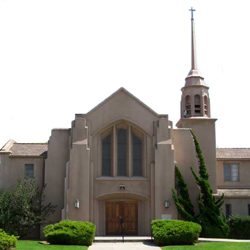“Birth Parent”
A meditation based on John 3:1-17
May 27, 2018
Community Congregational Church of Chula Vista
Dr. Sharon R. Graff
* * * * *
It was the dark of night, when Nicodemus stirred. His questions plagued and skirted around the edges of his consciousness. With a start, he arose and knew exactly what to do, where to go with these questions. It was the dark of night, when none of his fellow Pharisees would see him. It was the dark of night, when Nicodemus, a learned lawyer, pulled all his bodily courage into his sandals and let them carry him to the One who could give answers, but more importantly, his questions on that dark of night lured Nicodemus toward the One who could hear, really hear, his questions.
It was the dark of night—safe, unseen, quiet, time out of time—night: when Nicodemus the lawyer sought out Jesus the Teacher—and together, they talked of life. New life, that miraculous moment of birth we have each experienced, yet none of us remembers fully. Our travel down the birth canal; that first glimpse of light outside the protective womb of our mother; that filling of the lungs with air for the first time and our visceral response—crying—our unique voice first being heard on earth. Having each experienced this journey from protective womb to vulnerable life, Nicodemus and Jesus talked of what constitutes real life. They spoke of some of the same questions that still plague followers of Jesus today…when does life begin? How is life conceived? What does it mean to be born a second time? And is a second birth even possible or necessary?
It is worth noticing that these are questions spoken often, only in the dark of night…in that space and time when one feels safe yet vulnerable, unseen, yet heard at the core of one’s being. These are questions for what mystics call “liminal time”—that time when the clock on your phone seems to stop and Spirit’s clock takes over. You know that time, yes? I imagine that this conversation between Jesus and Nicodemus was this sort of open-hearted sharing, which deepened their relationship from that time on. We are told, later in scripture, that Nicodemus was changed by this encounter with Jesus, and when Jesus was being ridiculed, Nicodemus stepped into an arguing cluster of his legal colleagues to defend Jesus, and later he even helped Joseph of Arimathea bury Jesus’ body. Such was the impact that this encounter had on Nicodemus in that dark night.
Centuries later, a Spanish man by the name of St. John of the Cross, would also venture into that “dark night of the soul,” not once but many times. Rather than viewing the dark night as a place and time of dread, however, St. John of the Cross, a 16th-century Christian mystic, describes the soul’s dark night by using the metaphoric language of two lovers meeting unseen by others and safe in their love. While we may have been schooled to think of the “dark night of the soul” as something to be dreaded, something unpleasant, St. John of the Cross spoke of the “dark night” as a time of deep closeness with God.
This passage I want to read to you today is from a modern-language translation of St. John’s famous work, and I invite you to listen for how a “dark night experience” is not to be dreaded, but rather sought out with great anticipation…
“The dark night of the soul is for the seeker so on fire with love for God that he or she will get to God by any means necessary. This includes being willing to plunge into the abyss of the Unknown, of the Unknowable. It is a path for the spiritually desperate…and yet it is a state over which the soul has absolutely no control.” To enter the “dark night of the soul” is to be truly humble…“…to feel a tender acceptance of all reality just as it is, which includes compassion for ourselves just as we are. This kind of humility is a surrender of our whole being to the simple truth of love…”
What if Lawyer Nicodemus was, like many of you, a spiritual seeker? What if he sought out Jesus, not because his sleep was troubled by questions and doubts, but rather because his questions awakened in him a desire for more? More answers, to be sure, but also more relationship…more closeness with the Divine…more connection with others…more courage…more compassion for self…in a word, more love… Nicodemus is not unlike ourselves. We seek for so much more in life, don’t we? And, like Nicodemus, our many questions prompt our search. Our questions, our doubts are, as one of my favorite theologians describes, “the ants in the pants of faith!” They get us up and get us going. They keep us from being too comfortable in one place.
But friends, though our questions and our doubts serve to propel us forward on the journey of faith, they are not the whole of the journey. For Jesus makes clear that the destination is love…the pathway is love…the substance and the object of the journey of faith is love. “God so loved the world, that God gave the world love incarnate…” God so loved this church that God gave this church love embodied in thousands of conversations and millions of kind gestures… God so loved you that God gave you one after another experience of love in action, love in human form, love in birth, love in life, love in the dark of countless nights, and love in the bright sunlight of your days. God so loved you, that God gave you love. That’s what the first part of that very familiar scripture at the end of today’s bible story means. God personalized love incarnate for each and every one of us and continues to do for as long as we live. The verse doesn’t end there, however.
There is a response expected from us, as we awaken to the presence of God’s love in our own lives. The passage reads, “For God so loved the world that God gave the only Son, so that everyone who believes in him may not perish but may have eternal life. Indeed, God did not send the Son into the world to condemn the world, but in order that the world might be saved through him.” As a budding universalist—one who believes that God saves everyone eventually—I confess that I’ve been troubled by this verse over the years. Does it really mean that only Jesus-followers will get to heaven? Does it really mean that God saves only Christians? Many believe so, maybe many of you within this congregation. And maybe Jesus does mean to describe a kind of particular faith journey that pleases God more than others. Here’s another way to see this set of familiar words of Jesus, and it comes from contemporary Bible scholar Marcus Borg. He writes, “Christian belief is not accepting Jesus into our hearts; Christian belief means having the same heart as did Jesus.” Think about that for a moment…a long moment…
Imagine your life lived as if the heart of Jesus was beating within your chest. Imagine awakening to the power of God’s love in your life. Imagine becoming an agent of healing, of truth-telling, an agent of change as was Jesus. Imagine small: helping one person to see God’s love in action through you. Imagine living into God’s call in your life to live love, to speak love, to act and react with love. Imagine a world where that ideal becomes real because you choose to make it so. In the story we’ve read today, Jesus seems not at all concerned with the text of Nicodemus’ creed, with what he believes and why. Rather, step by step, Jesus is building a case for belief that is based solely in the love of God. Reference after biblical reference, metaphor following metaphor—from birth itself to the wind of the Spirit to Moses raising the serpent in the wilderness as a sign that God would not abandon the desert wanderers to death—Jesus skillfully argues his case in the presence of one of Judaism’s finest lawyers: the case that God still—and always—is love…
That love, argues Jesus, is the only basis upon which his own life and ministry have meaning. And that love of God for humanity, means that God will not abandon you to death, but will, again and again provide a pathway through the wilderness of any lonely and dark night of your soul. The question of faith for us, some 20 centuries later, is of course, can God really be counted on to do the same on nights when we cannot sleep…when the chatter in our heads is filled with questions, doubts, wonderings and wanderings…when we shed a tear or two…when we are having a Nicodemus moment…can the love of God reach past the first century to embrace us in the twenty-first?
If we are daring enough as was Nicodemus to venture out into the unknown shadows to grasp that, ultimately and foundationally, God is not at all interested in our beliefs, our creeds, our crutches of institutional religion upon which we lean for support. God simply and purely wants to love us and wants desperately for us to love God back by loving our fellow creatures. Through love, declares Jesus to Nicodemus…through love and only through love, are we led to our own salvation.
Come, friends, the pathway awaits through any dark night our soul can imagine or will ever experience, and at its bleakest point with its most penetrating shadows and its most painful questions, that is the place where Nicodemus and Jesus stand, as parents of our second birth, to lovingly welcome us home.
Amen and Blessed Be

